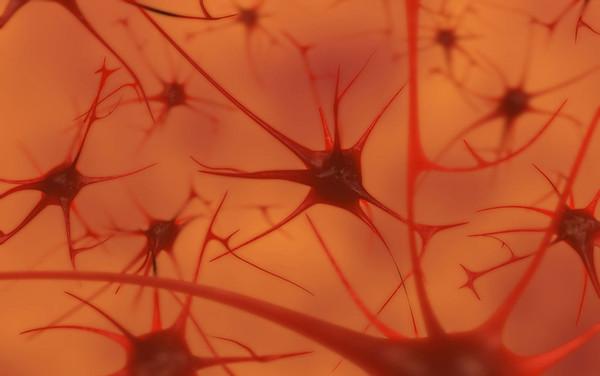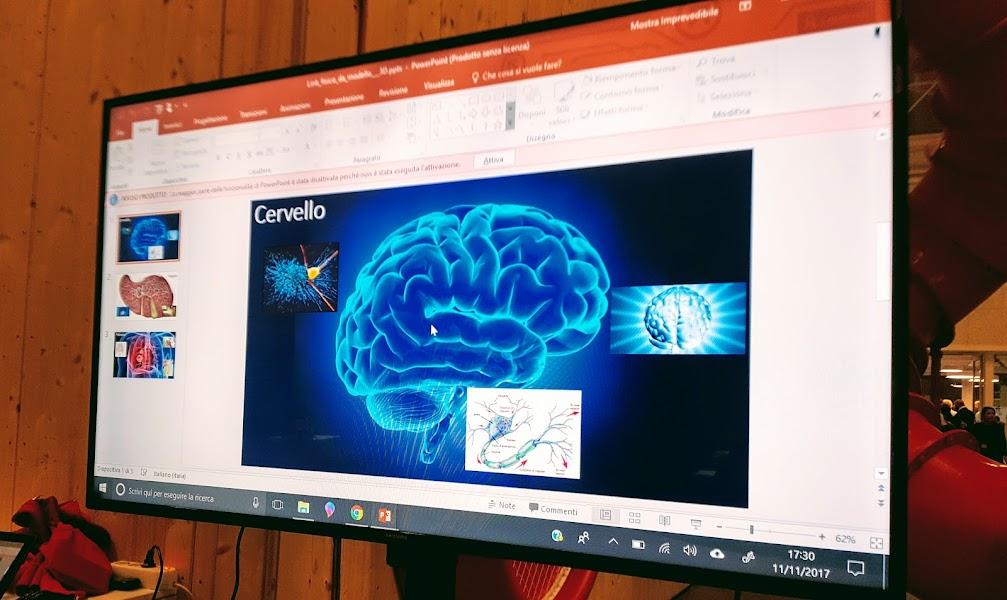Your brain does not process information and it is not a computer | Aeon Essays
Curated from: aeon.co
Ideas, facts & insights covering these topics:
16 ideas
·21.9K reads
99
10
Explore the World's Best Ideas
Join today and uncover 100+ curated journeys from 50+ topics. Unlock access to our mobile app with extensive features.
Brain is not a Computer
Your brain does not process information, retrieve knowledge or store memories. In short: your brain is not a computer.
Robert Epstein is a senior research psychologist at the American Institute for Behavioral Research and Technology in California. He is the author of 15 books, and the former editor-in-chief of Psychology Today.
158
2.68K reads
No Memories
No matter how hard they try, brain scientists and cognitive psychologists will never find a copy of Beethoven’s 5th Symphony in the brain – or copies of words, pictures, grammatical rules or any other kinds of environmental stimuli.
The human brain isn’t really empty, of course. But it does not contain most of the things people think it does – not even simple things such as ‘memories’.
164
2.46K reads
Historical Roots
Our shoddy thinking about the brain has deep historical roots, but the invention of computers in the 1940s got us especially confused.
For more than half a century now, psychologists, linguists, neuroscientists and other experts on human behaviour have been asserting that the human brain works like a computer.
To see how vacuous this idea is, consider the brains of babies. Thanks to evolution, human neonates, like the newborns of all other mammalian species, enter the world prepared to interact with it effectively.
149
2.07K reads
Social Connections
A baby’s vision is blurry, but it pays special attention to faces, and is quickly able to identify its mother’s.
It prefers the sound of voices to non-speech sounds, and can distinguish one basic speech sound from another.
We are, without doubt, built to make social connections. A healthy newborn is also equipped with more than a dozen reflexes – ready-made reactions to certain stimuli that are important for its survival.
It turns its head in the direction of something that brushes its cheek and then sucks whatever enters its mouth.
149
1.82K reads
Learning Mechanisms
It holds its breath when submerged in water. It grasps things placed in its hands so strongly it can nearly support its own weight.
Perhaps most important, newborns come equipped with powerful learning mechanisms that allow them to change rapidly so they can interact increasingly effectively with their world, even if that world is unlike the one their distant ancestors faced.
Senses, reflexes and learning mechanisms – this is what we start with, and it is quite a lot, when you think about it. If we lacked any of these capabilities at birth, we would probably have trouble surviving.
152
1.56K reads
Not Born With ...
But here is what we are not born with: information, data, rules, software, knowledge, lexicons, representations, algorithms, programs, models, memories, images, processors, subroutines, encoders, decoders, symbols, or buffers – design elements that allow digital computers to behave somewhat intelligently.
Not only are we not born with such things, we also don’t develop them – ever. We don’t store words or the rules that tell us how to manipulate them.
151
1.42K reads
Bits & Bytes
We don’t create representations of visual stimuli, store them in a short-term memory buffer, and then transfer the representation into a long-term memory device.
We don’t retrieve information or images or words from memory registers. Computers do all of these things, but organisms do not.
Computers, quite literally, process information – numbers, letters, words, formulas, images. The information first has to be encoded into a format computers can use, which means patterns of ones and zeroes (‘bits’) organised into small chunks (‘bytes’).
147
1.27K reads
Three Bytes Form the Word Dog
On my computer, each byte contains 8 bits, and a certain pattern of those bits stands for the letter d, another for the letter o, and another for the letter g.
Side by side, those three bytes form the word dog. One single image – say, the photograph of my cat Henry on my desktop – is represented by a very specific pattern of a million of these bytes (‘one megabyte’), surrounded by some special characters that tell the computer to expect an image, not a word.
Computers, quite literally, move these patterns from place to place in different physical storage areas etched into electronic components.
145
1.11K reads
App is an Application
Sometimes they also copy the patterns, and sometimes they transform them in various ways – say, when we are correcting errors in a manuscript or when we are touching up a photograph.
The rules computers follow for moving, copying and operating on these arrays of data are also stored inside the computer. Together, a set of rules is called a ‘program’ or an ‘algorithm’.
A group of algorithms that work together to help us do something (like buy stocks or find a date online) is called an ‘application’ – what most people now call an ‘app’.
147
965 reads
Our Mental Life
Forgive me for this introduction to computing, but I need to be clear: computers really do operate on symbolic representations of the world. They really store and retrieve.
They really process. They really have physical memories. They really are guided in everything they do, without exception, by algorithms.
Humans, on the other hand, do not – never did, never will. Given this reality, why do so many scientists talk about our mental life as if we were computers?
150
1.05K reads
Six Different Metaphors
In his book In Our Own Image (2015), the artificial intelligence expert George Zarkadakis describes six different metaphors people have employed over the past 2,000 years to try to explain human intelligence.
In the earliest one, eventually preserved in the Bible, humans were formed from clay or dirt, which an intelligent god then infused with its spirit. That spirit ‘explained’ our intelligence – grammatically, at least.
149
989 reads
Humans Are Complex Machines
The invention of hydraulic engineering in the 3rd century BCE led to the popularity of a hydraulic model of human intelligence, the idea that the flow of different fluids in the body – the ‘humours’ – accounted for both our physical and mental functioning.
The hydraulic metaphor persisted for more than 1,600 years, handicapping medical practice all the while.
By the 1500s, automata powered by springs and gears had been devised, eventually inspiring leading thinkers such as René Descartes to assert that humans are complex machines.
146
943 reads
The Brain Like a Telegraph
In the 1600s, the British philosopher Thomas Hobbes suggested that thinking arose from small mechanical motions in the brain.
By the 1700s, discoveries about electricity and chemistry led to new theories of human intelligence – again, largely metaphorical in nature.
In the mid-1800s, inspired by recent advances in communications, the German physicist Hermann von Helmholtz compared the brain to a telegraph.
146
915 reads
Prima Facie Digital
The mathematician John von Neumann stated flatly that the function of the human nervous system is ‘prima facie digital’, drawing parallel after parallel between the components of the computing machines of the day and the components of the human brain.
Each metaphor reflected the most advanced thinking of the era that spawned it. Predictably, just a few years after the dawn of computer technology in the 1940s, the brain was said to operate like a computer, with the role of physical hardware played by the brain itself and our thoughts serving as software.
146
837 reads
Cognitive Science
The landmark event that launched what is now broadly called ‘cognitive science’ was the publication of Language and Communication (1951) by the psychologist George Miller.
Miller proposed that the mental world could be studied rigorously using concepts from information theory, computation and linguistics.
This kind of thinking was taken to its ultimate expression in the short book The Computer and the Brain (1958), in which the mathematician John von Neumann stated flatly that the function of the human nervous system is ‘prima facie digital’.
146
831 reads
The Role of the Brain
Although he acknowledged that little was actually known about the role the brain played in human reasoning and memory, he drew parallel after parallel between the components of the computing machines of the day and the components of the human brain.
146
968 reads
IDEAS CURATED BY
CURATOR'S NOTE
My Brain is my World
“
Antonio Gallo's ideas are part of this journey:
Learn more about sciencefiction with this collection
Cultivating a growth mindset and embracing challenges
Developing adaptive thinking and problem-solving skills
Effective learning frameworks and approaches
Related collections
Similar ideas
6 ideas
Why Is the Human Brain So Efficient?
nautil.us
3 ideas
9 ideas
How Does the Human Mind Work?
exploringyourmind.com
Read & Learn
20x Faster
without
deepstash
with
deepstash
with
deepstash
Personalized microlearning
—
100+ Learning Journeys
—
Access to 200,000+ ideas
—
Access to the mobile app
—
Unlimited idea saving
—
—
Unlimited history
—
—
Unlimited listening to ideas
—
—
Downloading & offline access
—
—
Supercharge your mind with one idea per day
Enter your email and spend 1 minute every day to learn something new.
I agree to receive email updates

